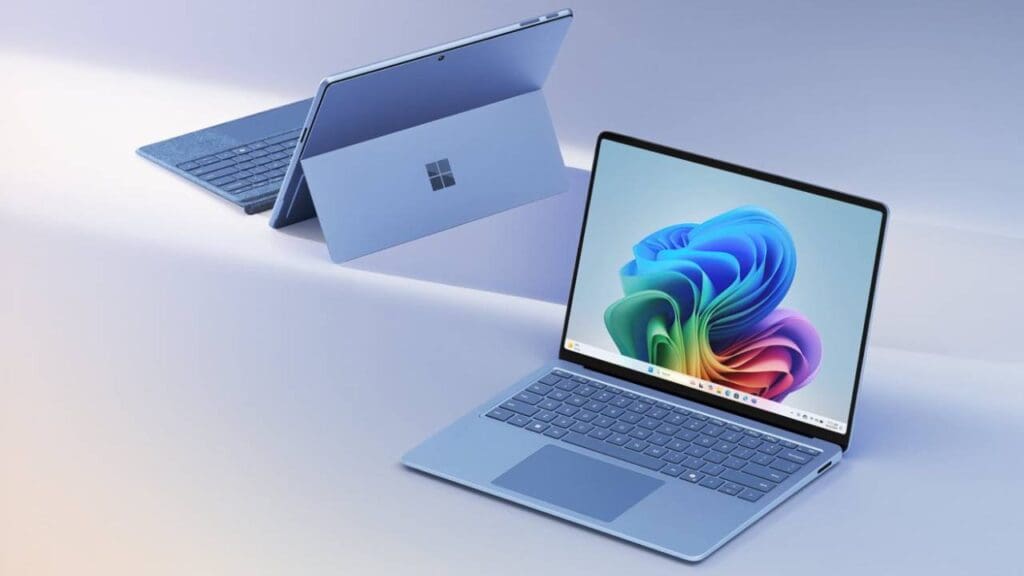Recent claims that Microsoft will surpass Apple are not new. But can the Microsoft Copilot PC outperform Apple Macs?
The recent claims in the technology world that Microsoft will beat Apple are not new. In the past, products like the Zune, which targeted the iPod, Windows Phone, which emerged as a competitor to the iPhone, and the Microsoft Band, which was positioned against the Apple Watch, were concrete indicators of this competition.
Now, there is talk that Microsoft will challenge Apple’s Mac computers with a new concept called Copilot PC. According to these claims, Copilot PCs, which Microsoft will design and produce itself, will surpass Apple by providing overwhelming superiority not only in the computer market but also in the artificial intelligence market, known as Edge AI.
What do you think about Microsoft’s new move? Share your thoughts in the comments section below.
Can Microsoft Copilot PC hit Apple Macs?
What is the basis for these claims? According to technology analysts, Copilot PCs will offer various hardware options to users, adhering to standard designs set by Microsoft. They will also have unlimited access to Microsoft’s software development tools for a monthly fee and will be able to purchase AI-powered apps from approved app stores.
What do you think about this potential development? Share your thoughts in the comments section below.

Macs with the M3 chip, on the other hand, will lack this flexibility, and users will have to make do with the limited options offered by Apple. Additionally, Microsoft Copilot, an AI-powered chatbot integrated into Copilot PCs, will not be available on Macs.
These factors lead some analysts to predict that Apple’s dominance may be waning and that Microsoft could soon take over the computer market. However, it is important to ask some critical questions at this point.
First, it is worth remembering how successful Microsoft’s strategy of entering the market late and then aggressively dominating has been in the past. For example, Windows 95 managed to capture the market for desktop operating systems with graphical interfaces, despite being released ten years after its competitors.
Similarly, Windows NT disrupted the well-established UNIX workstation market and outperformed OS/2. Microsoft Office applications defeated strong competitors such as Lotus 1-2-3 and WordPerfect. Internet Explorer also managed to dethrone Netscape. But these successes do not guarantee that Microsoft will always win.
What are your thoughts on this potential shift in the tech industry? Share your opinions in the comments section below.
In fact, what Microsoft is attempting with the Copilot PC today seems reminiscent of its 2006 effort to create the “iPod Killer” with Windows Media Player-branded MP3 players. At that time, companies producing Windows PCs were also making MP3 players according to the standard designs set by Microsoft, trying to compete with the iPod.
However, the iPod continued to dominate the market, and Microsoft’s attempt ended in failure. A similar situation occurred with the Microsoft KIN phone, introduced in 2010 and expected to rival the iPhone. The KIN failed to prevent the rise of the iPhone and ended up being a commercial fiasco, relegated to the annals of history.
What do you think about Microsoft’s latest endeavor? Share your thoughts in the comments section below.
Today, Microsoft seems to be acting as if it has just discovered the importance of local AI processing capabilities with its Copilot PCs. However, Apple made a significant stride in this area in 2017 with the introduction of the Neural Engine in the iPhone X.
The Neural Engine was a processor of Apple’s own design, specially developed to accelerate AI processes by performing 600 billion operations per second. Apple has continuously improved the Neural Engine since 2017, making it stronger with each new iPhone and iPad model.
With the A12 Bionic processor introduced in 2018, the Neural Engine could perform 5 trillion operations per second. In 2019, with the A13 Bionic, this number reached 6 trillion, in 2020 with the A14 Bionic, it reached 11 trillion, in 2021 it reached 15.8 trillion with the A15 Bionic, and in 2022 it reached 17 trillion with the A16 Bionic.
Finally, the Neural Engine in the A17 Pro processor, introduced in 2023, has the capacity to perform 35 trillion operations per second. Additionally, since 2020, Apple has been using the Neural Engine not only in iPhones and iPads but also in Mac computers.
In other words, Apple has been selling AI-powered Mac computers for four years and has significant experience in this field. Meanwhile, Microsoft is trying to present the Bing Chat chatbot, which is still in its infancy and built into Windows PCs, as the most important feature of Copilot PCs.
Therefore, claims that Microsoft will surpass Apple with Copilot PCs resemble scenarios that have played out many times before and failed. As in the past, Microsoft is trying to gain market share by imitating Apple and making its own technologies appear more innovative than they are.
Whether consumers will fall for these tactics depends on whether Microsoft can deliver a truly innovative product. Time will tell. For now, it seems more logical to be skeptical of analysts who predict a doomsday scenario.
What do you think about this ongoing competition? Share your thoughts in the comments section below.
You may also like this content
- What is Artificial Intelligence?
- Top 15 Artificial Intelligence Tools and Websites in 2025
- Understanding How Artificial Intelligence Works

